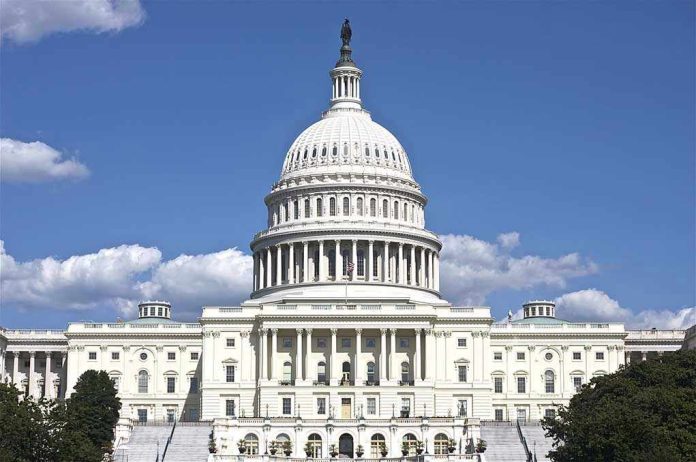
Despite the outcry, the overwhelming majority of undocumented immigrants simply cannot get taxpayer-funded SNAP benefits—yet a sweeping new law now bars many legal refugees and humanitarian immigrants from the food aid millions rely on, leaving entire communities reeling in confusion and hardship.
Story Snapshot
- Undocumented immigrants are largely ineligible for SNAP, contrary to persistent claims.
- The 2025 OBBB Act sharply restricts access to SNAP for many lawfully present noncitizens, including refugees and asylees.
- Most accusations of SNAP abuse by undocumented immigrants lack factual basis and ignore existing strict verification systems.
- The real impact falls hardest on legal immigrants, local businesses, and food security for vulnerable communities.
New SNAP Rules Target Legal Immigrants, Not the Undocumented
On July 4, 2025, Congress passed the One Big Beautiful Bill Act, touted as a fix for alleged rampant abuse of the nation’s food stamp program by illegal immigrants. The reality? The OBBB Act’s teeth bite not into the undocumented, but into the ranks of legal refugees, asylees, and other humanitarian immigrants—groups previously allowed a lifeline through SNAP. Critics and supporters alike now face a stark new landscape: legal noncitizens, many who fled violence or persecution and were once embraced by U.S. policy, are abruptly cut off from food assistance. The law now mandates stricter eligibility, with states scrambling to untangle who still qualifies and who’s left to fend for themselves.
What we have always known…hello
Illegal Aliens Milk SNAP For Taxpayer-Funded Free Food https://t.co/EHzEIWECQV
— Duke (@raoul_duke20766) November 3, 2025
State agencies, responsible for implementation, are reporting widespread confusion. Federal guidance, issued two months after the law passed, has left room for misinterpretation, and in some states, even refugees and survivors of trafficking—populations explicitly protected in previous statutes—are being dropped from the rolls. The process to appeal or clarify status is slow and bureaucratic, often leaving families in limbo.
Persistent Myths, Tougher Realities
For decades, claims that “illegal aliens” are draining SNAP have echoed through political debate. In fact, federal law has barred undocumented immigrants from SNAP since the 1996 welfare reforms. Eligibility has always required proof of legal presence, run through systems like SAVE (Systematic Alien Verification for Entitlements), which checks immigration status before benefits are issued. Fraud, where it occurs, is a rare exception, not the rule. Yet the myth persists, amplified by headlines and social media, diverting attention from the real, measurable impact of legislative changes.
What’s new post-OBBB is the exclusion of tens of thousands of lawful immigrants. Refugees who arrived with nothing but hope and paperwork, lawful permanent residents still within their first five years, and families escaping trauma or violence—these are the people now facing empty cupboards. Meanwhile, the accusation that undocumented immigrants are “milking” SNAP for free food remains unsupported by credible data, a narrative outpaced by the system’s own checks and balances.
Economic and Social Fallout: Who Pays the Price?
SNAP does more than feed families; it injects billions into local economies, supporting grocers, farmers, and small towns. With the new exclusions, rural and urban communities alike feel the pinch. Local stores report falling sales, while food banks—already stretched thin by inflation and supply chain woes—brace for surging demand. State officials, charged with enforcing the law, must now devote more resources to verifying, investigating, and recouping overpayments, often from recipients who acted in good faith under old rules.
Illegal Aliens Milk SNAP For Taxpayer-Funded Free Food https://t.co/y6TKo3inke
Of course they are!
— Nedra Waters 🇺🇸 (@NedraWater101) November 3, 2025
Advocacy organizations warn of a coming spike in food insecurity among legal immigrants. Families already on the edge face impossible choices, and public health experts predict long-term consequences for children and seniors who lose access to nutritious food. Ironically, as the OBBB Act aims to “protect taxpayers,” it may shift costs to local governments and charities, as demand for emergency food aid soars and local economies lose the stimulus SNAP once delivered.
Debate, Data, and the Way Forward
Industry experts and advocates across the spectrum agree on one point: the vast majority of undocumented immigrants do not receive SNAP, and the program’s verification systems are among the strictest of any federal benefit. Where disagreement remains is not on the facts, but on the framing—whether restricting aid to legal immigrants is a necessary cost-saving measure, or a policy misfire that punishes the very people once welcomed for their resilience and need.
Research from government and independent organizations backs up the data: most SNAP recipients are either citizens or lawfully present immigrants who passed rigorous checks. While anti-immigration groups argue for ever-tighter rules, pointing to the cost of benefits, advocacy groups counter that the true cost will be measured in hunger, lost productivity, and weakened communities. As the repercussions of the OBBB Act ripple out, the nation confronts a sobering truth—policy driven by narrative, not numbers, risks hurting the very people it claims to protect.
Sources:
USDA Food and Nutrition Service
USCRI: SNAP a Survival Lifeline for Refugees and Immigrants
USAFacts: Immigrant Program Eligibility
Center for Immigration Studies
National Immigration Law Center



